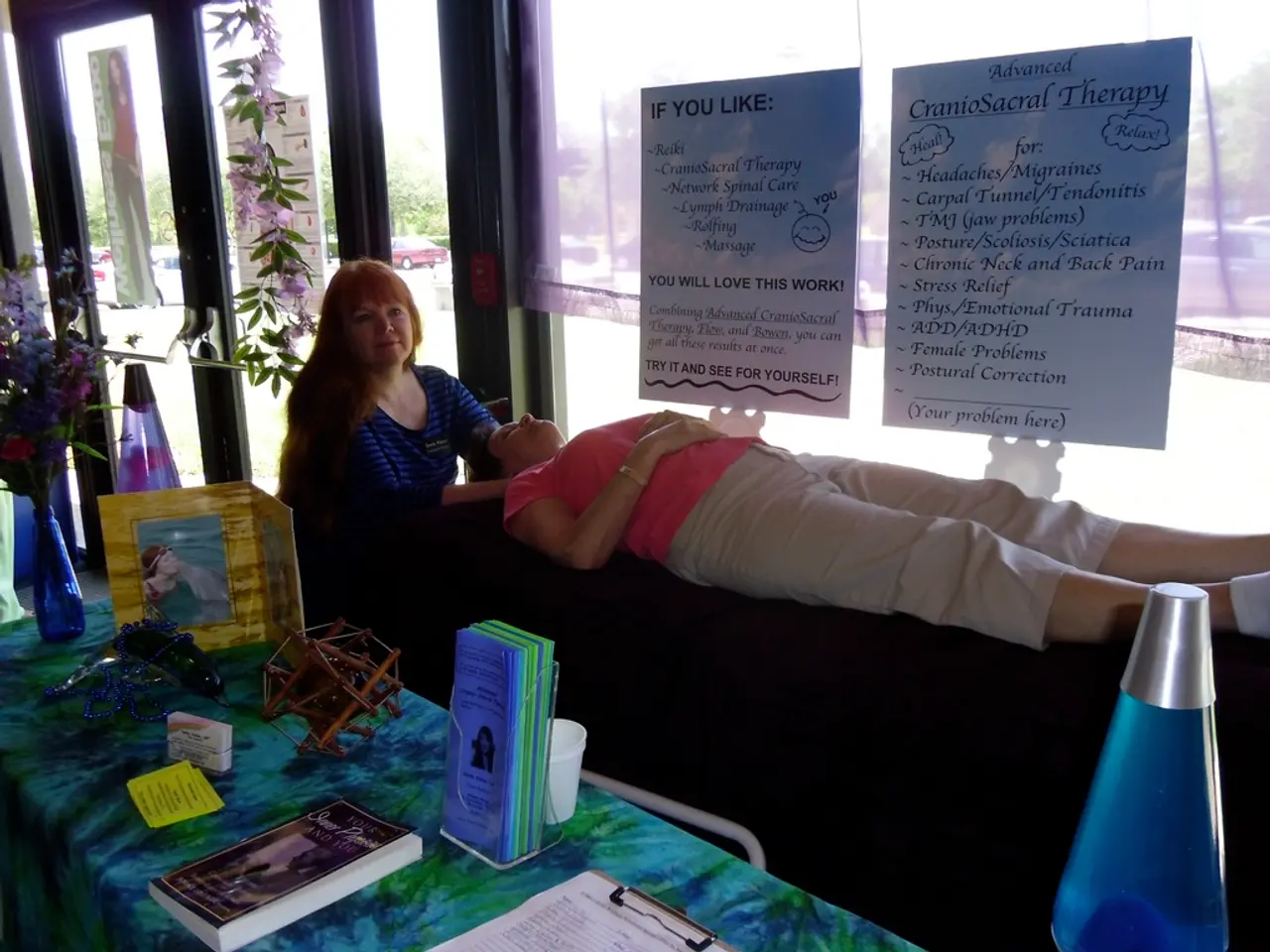Exploring the Inner Workings of the Human Mind: Key Findings from a Wide-Ranging Study
Professor Dr. Gregor Hasler, a renowned expert in psychiatry and psychotherapy, recently delivered a captivating lecture at Pforzheim University titled "Resilience - The Key to Personal Resilience." The event, part of the Studium Generale in the winter semester 23/24, drew an audience of approximately 500 people in person and nearly 1,200 online viewers.
Hasler, a full professor at the University of Freiburg in Switzerland, highlighted the significance of friends and people in close physical proximity for building resilience. He emphasised the importance of endorphin-rich activities, such as choir singing, laughter, dancing, touching, or storytelling, in fostering resilience.
In addition to social connections, Hasler underlined the key role of nutrition in increasing resilience. He recommended an "anti-stress diet" that focuses on vegetables, nuts, olive oil, fermented foods, and fish. However, he was critical of dietary supplements, stating that no positive effect on resilience was found.
Hasler also suggested conscious avoidance as a strategy to manage high stress levels, citing an example of a politician who doesn't read the newspaper. He encouraged listeners to live in the present moment, quoting Eckhart Tolle's quote: "Most people are never fully present in the now because they unconsciously believe that the next moment must be more important than this one. But then they miss their whole life."
The professor viewed the stress crisis as a complex problem that cannot be reduced to a single trigger. He identified diverse causes of stress, including unhealthy eating, increased social media screen time, and the increased competitive pressure in our performance-oriented society. In the professional context, he identified administration and digitalization as stress factors that cause a feeling of "overcontrol" and pressure.
The lecture was described as highly informative, well-prepared, and entertaining. A cozy get-together followed the event to further discuss the issues. The audience's fascination with the topic was evident as they continued to ask questions late into the evening. The increase in stress levels of employees has risen by about 20 percent in the last three decades, making the topic more relevant than ever.
Professor Dr. Gregor Hasler's expertise in psychiatry and psychotherapy, coupled with his practical leadership as a chief physician, positions him as an authority on stress and resilience. While direct quotes or writings explicitly stating Hasler’s personal views on stress, resilience, or resilience-building strategies were not found in the search results, his professional focus suggests that he views stress as a significant factor in mental health and that resilience involves personal and possibly biological or psychological strategies to withstand or recover from stress.
[References] [1] Studium Generale, Pforzheim University. (2023). Lecture Series. Retrieved from https://www.studium-generale.pforzheim-university.de/ [2] Wikipedia. (2023). Gregor Hasler. Retrieved from https://en.wikipedia.org/wiki/Gregor_Hasler
- The workplace wellness, health, and mental health of individuals are connected, as Professor Gregor Hasler explained in his lecture on resilience.
- Beyond social connections, nutrition plays a crucial role in building resilience, with an 'anti-stress diet' focusing on vegetables, nuts, olive oil, fermented foods, and fish being recommended by Hasler.
- Entertainment can serve as a coping mechanism for stress, as evidenced by the highly informative, well-prepared, and entertaining nature of Hasler's lecture.
- Social media and increased screen time can contribute to stress levels, making them a concern for mental health and wellness, as Professor Hasler identified in his lecture on resilience.




